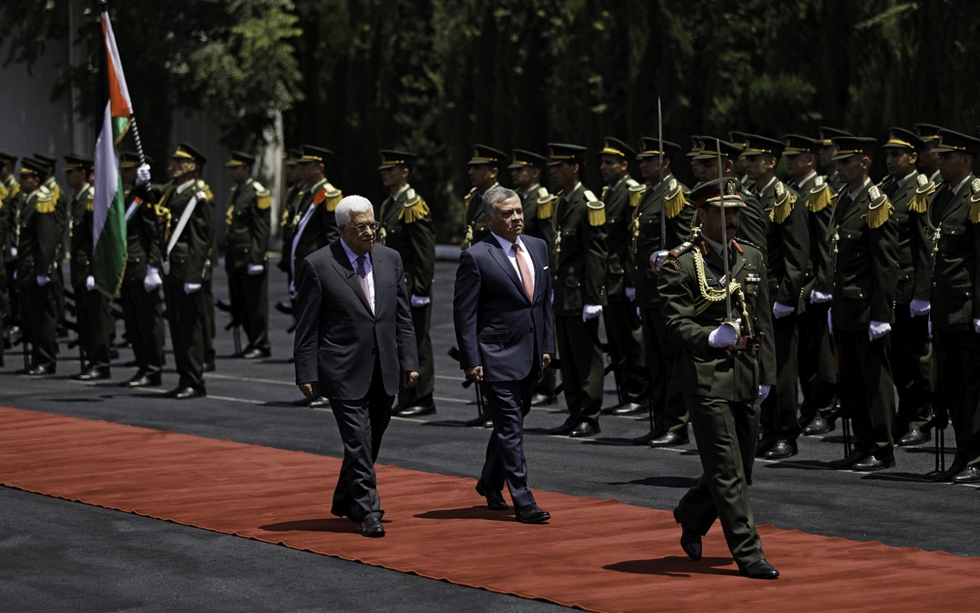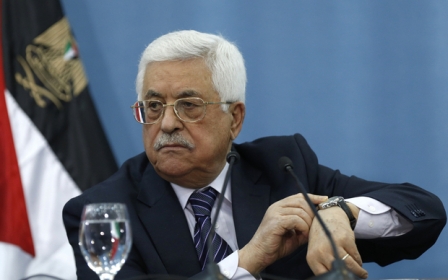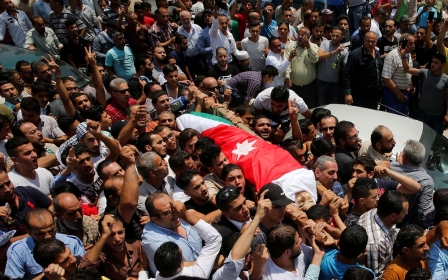Jordan's king in Ramallah to discuss holy site tensions

Jordan’s King Abdullah arrived in the West Bank on Monday to meet the Palestinian president, Mahmoud Abbas, and discuss the recent tensions in Jerusalem and wider political developments.
While the two leaders meet fairly frequently in Amman and other regional capitals, Abdullah has not visited Ramallah, the seat of the Palestinian Authority, since December 2012.
The king arrived by helicopter, with the visit coordinated with Israeli authorities which control all entrance and exit points to the West Bank, including its 150km (93-mile) border with Jordan and the air space above.
The visit comes at a time when tensions are high between Israelis and Palestinians, the result of a standoff over access to the Al-Aqsa mosque compound, known to Jews as the Temple Mount.
Following the killing of two Israeli Druze policemen two weeks ago, Israeli authorities installed metal detectors at the entrance to the site and intermittently restricted access to men under 50.
The change in security led to days of protests and clashes between Palestinian worshippers and Israeli security forces before Israel, after consultations with Jordan, decided to remove the metal detectors and other measures.
Jordan has been the custodian of Jerusalem's Muslim holy sites since the 1920s. The compound, which sits on a tree-lined plateau in the Old City, is also revered by Jews, who call it Temple Mount, the site of two ancient Jewish temples.
Palestinian officials provided little detail on what Abbas and Abdullah would discuss, but said the situation at Al Aqsa and broader political concerns would be touched on.
Discussions to concern efforts exerted to resolve the crisis
"The visit comes in the course of continued consultation and coordination on all levels," said Nabil Abu Rudainah, Abbas's spokesman.
"They will also evaluate the current incidents happening in Jerusalem and in particular what happened at Al-Aqsa mosque and the efforts exerted to resolve the crisis."
Jordan, which signed a peace treaty with Israel in 1994 and has growing, if little discussed, economic ties with its neighbour, often plays a mediating role in the region.
With a large percentage of Jordan's population made up of Palestinians, and Jordan sharing a border with the West Bank, which the Palestinians want for their own state together with East Jerusalem and Gaza, its position is sensitive.
Abbas and Abdullah are also likely to discuss US-led efforts to restart Israeli-Palestinian peace talks, which have been suspended for the past three years.
President Donald Trump's regional envoy, Jason Greenblatt, has made several trips to Amman, Ramallah and Jerusalem this year to try to find common ground, but there is little sign of enthusiasm on anyone's part to start negotiating again.
Abdullah is also playing a role in liaising with Egypt and others to see if long-standing differences between Abbas's Western-backed Fatah party and the rival Hamas Islamist movement can be resolved.
Hamas, which won the last parliamentary elections held in the Palestinian territories in 2005, seized full control of Gaza after a struggle with Fatah in 2007.
Over the past several months, Abbas, as head of the Palestinian Authority, has stepped up pressure on Hamas, cutting off salaries for civil servants in Gaza, limiting payments for electricity imports and some medicines.
The aim appears to be to oust Hamas from power, but there is little sign of that happening and efforts are being made by regional powers to resolve the internal fighting.
New MEE newsletter: Jerusalem Dispatch
Sign up to get the latest insights and analysis on Israel-Palestine, alongside Turkey Unpacked and other MEE newsletters
Middle East Eye delivers independent and unrivalled coverage and analysis of the Middle East, North Africa and beyond. To learn more about republishing this content and the associated fees, please fill out this form. More about MEE can be found here.




